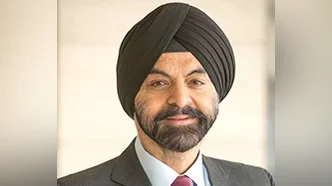PARIS, June 26, 2025—The World Bank Group and the International Atomic Energy Agency (IAEA) have formalized a partnership to support the use of nuclear energy in developing countries. This agreement, signed by World Bank Group President Ajay Banga and IAEA Director General Rafael Mariano Grossi, marks a significant step for the World Bank Group's reengagement with nuclear power.
This collaboration reflects a new approach by the World Bank Group towards electrification, focusing on accessibility, affordability, and reliability while managing emissions. With electricity demand expected to double in developing countries by 2035, this initiative aims to provide pathways that align with national development objectives.
"Nuclear energy provides continuous baseload power," stated Ajay Banga. "Jobs need electricity. So do factories, hospitals, schools, and water systems. And as demand surges—with AI and development alike—we must help countries deliver reliable, affordable power."
Rafael Mariano Grossi remarked on the significance of this agreement: “Today’s agreement is a milestone... opens the door for other multilateral development banks and private investors to consider nuclear as a viable tool for energy security.”
The memorandum outlines three areas of focus:
1. Expanding knowledge related to nuclear safety and technology.
2. Supporting safe extension of existing nuclear reactors' lifespans.
3. Advancing small modular reactors (SMRs) for flexible deployment.
Currently, 31 countries operate nuclear plants producing about 9% of global electricity. More than 30 additional countries are exploring nuclear power with IAEA assistance.
“SMRs have great potential... but financing remains a roadblock,” said Grossi.

